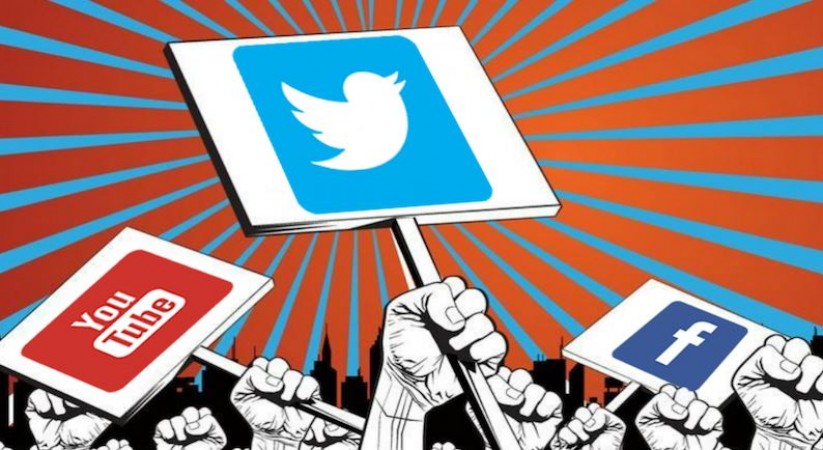
Introduction
Social media platforms have revolutionized the way people communicate, interact, and access information. Over the years, these platforms have gained significant influence and have become powerful tools in the realm of politics. The impact of social media on politics is undeniable, with its ability to shape public opinion, mobilize the masses, and even influence political outcomes. In this article, we will explore the various ways in which social media has transformed the political landscape.
Social Media as a Political Tool
Social media platforms such as Facebook, Twitter, Instagram, and YouTube have emerged as key channels for politicians and political parties to engage with the public. These platforms provide a direct line of communication between politicians and their constituents, allowing them to share their views, policies, and initiatives. Politicians can leverage social media to build a strong online presence, connect with voters, and gain support for their campaigns.
Influence on Political Campaigns
Social media has revolutionized political campaigning. It enables candidates to reach a wider audience at a fraction of the cost compared to traditional media channels. Through targeted advertising and personalized messaging, politicians can tailor their campaign strategies to specific demographics and regions. Social media platforms also offer real-time feedback, allowing campaigns to analyze public sentiment and adjust their messaging accordingly.
Mobilization of the Masses
One of the most significant impacts of social media on politics is its ability to mobilize the masses. Platforms like Twitter and Facebook have been instrumental in organizing protests, rallies, and political movements. Hashtags and viral campaigns have the power to unite like-minded individuals and create a sense of collective action. Social media provides a platform for political activists to share their ideas, raise awareness, and mobilize support for various causes.
The Spread of Misinformation
While social media has brought numerous benefits to the political sphere, it has also amplified the spread of misinformation. False narratives, fake news, and conspiracy theories can quickly go viral, reaching millions of people within minutes. The rapid dissemination of inaccurate information can sway public opinion, create division, and undermine the credibility of political institutions. Combating misinformation on social media platforms has become a significant challenge for policymakers and tech companies alike.
Real-Time Communication and Engagement
Social media has transformed the way politicians and citizens communicate. With platforms like Twitter, politicians can make real-time announcements, respond to queries, and engage directly with their constituents. This immediate and unfiltered interaction fosters transparency, accountability, and accessibility in the political process. It allows politicians to connect with a broader audience and create a sense of closeness and relatability.
Shaping Public Opinion
Social media platforms have the power to shape public opinion by influencing the information people consume and the perspectives they are exposed to. Through algorithms and personalized recommendations, social media platforms curate content tailored to an individual's interests and beliefs. This phenomenon can create echo chambers, where individuals are primarily exposed to viewpoints that align with their own. The manipulation of social media algorithms has raised concerns about the potential for bias and the impact on democratic processes.
Privacy and Security Concerns
The extensive use of social media in politics has raised significant privacy and security concerns. Political campaigns collect vast amounts of personal data from social media users, which can be used to target individuals with tailored messages. There are concerns about the misuse of this data for manipulative purposes, such as microtargeting specific voter groups or spreading disinformation. Striking a balance between utilizing the benefits of social media and protecting user privacy is a critical challenge for policymakers.
Social Media Regulation
The impact of social media on politics has sparked debates about the need for regulation. Many argue that social media platforms should be held accountable for the content shared on their platforms, especially when it comes to political advertising and the spread of misinformation. Governments worldwide are grappling with finding the right balance between freedom of speech and protecting the public from harmful or misleading content. The regulation of social media platforms poses complex challenges and requires careful consideration of the implications for democracy and free expression.
Conclusion
Social media has had a profound impact on politics, transforming the way politicians interact with the public, shaping public opinion, and mobilizing the masses. While it offers numerous opportunities for political engagement, it also presents challenges such as the spread of misinformation, privacy concerns, and the need for regulation. As social media continues to evolve, it is crucial to strike a balance that harnesses its potential while addressing its pitfalls, ensuring a healthy and democratic political discourse in the digital age.
iQOO Unveils the Feature-Packed Neo 7 Pro Smartphone in India
Pre-Reservations for Galaxy Z Fold 5 and Galaxy Z Flip 5 in India
Exploring the World of Augmented Reality: Blending the Physical and Digital Realms